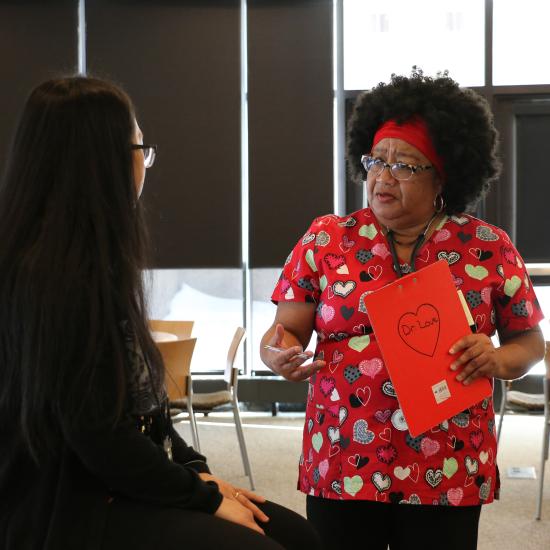Finding Balance through an Integrated Model of Service
We live in complex and challenging times. Ads on TV, the internet and radio remind us of it constantly. They showcase ways for us to slow down, to step away from the daily hustle, to take a moment to breathe. There are apps for that, too! When living and working in that complexity, we persistently encounter an imbalance of task (getting things done) and relationship (working well together). There is often too much emphasis on having and doing, and not enough on being. We often feel isolation, low motivation and high stress, many times while experiencing unhealthy competition. All of this having a negative effect on our desired and sustainable impact. So, what can we do about it?
For the past five years, we have been working on a new model--a different way of working with a greater focus on being. A group of dedicated staff have been contributing to the development and implementation of an Integrated Model of Service (IMS), a collaborative approach to serving youth, adults and families in supportive housing and school-based, culturally specific mental health services at Wilder. Our hope from the beginning has been that this innovative approach will create a healthier balance of task and relationship in order to shift the way employees and partners are able to “be together.” This means having a positive impact on the way that we all work with each other, our clients, and the communities we serve.
How does the Integrated Model of Service impact the work environment?
One of the most important aspects of an Integrated Model of Service is a focus on self-care and personal renewal. Why? Because we know that a healthy workplace comes from a commitment to the well-being of all who serve. What we can expect from this approach is
- A caring & vibrant culture of authentic engagement that continues to evolve
- Increased trust (in yourself and others)
- Quality collaboration
- Greater clarity, confidence & commitment
- Achieving goals in the highest service of families & communities
What does it take to focus on self-care and personal renewal?
It requires all of us to BE. Be Present. Be You. Be Well. It requires us to say YES to:
- Holding space that welcomes & engages everyone
- Being open & curious
- Willing to listen with empathy & without judgment
- Meeting people where they’re at with compassion
- Making self-care a priority
- Using circle practice as a way to nurture & promote authentic engagement
- Acknowledging with gratitude the ongoing opportunities for learning & growing
How does change happen through the Integrated Model of Service?
Sustainability is key to change. To create the change we wish to see in our lives and communities we must shift our focus to “being the work” not just “doing the work.”
- Commit to growing your awareness & understanding
- Seek learning spaces that shift your paradigm
- Participate in a Community of Practice
In the photo: Wilder staff in Supportive Housing Services and School-Based Mental Health Services who collaborate through the Integrated Model of Service (IMS) came together to discuss and demonstrate self-care techniques using light-hearted exercises.
Jackie Levin, M.A. Leadership Guide | Professional Development Program Designer | Social Entrepreneur
Working in business and public education settings over the past 42 years, Jackie Levin has designed a wealth of products and programs that inspire individuals and teams to bring their full expression into “work life” and “life work.” As an independent consultant, Jackie guides self-discovery process through individual and group coaching; promotes authentic engagement through convening practices, and inspires well-being through personal and professional learning experiences.
Marcela Sotela Odor, M.P.A. Participatory Leadership Process Facilitator | Visual Practitioner | Professional Development Program Designer
Marcela is an educator, mediator, creative soul, and host of participatory processes. Born in Costa Rica, she is passionate about idea exchanges and multicultural interactions. During the last 15 years, Marcela has been at the service of the Liberian, Somali, Latino, Native and African American communities in the United States, in her roles as mediator for families and young people and Policy Fellow at the Humphrey School focusing on health disparities in minority communities in the state of Minnesota.
